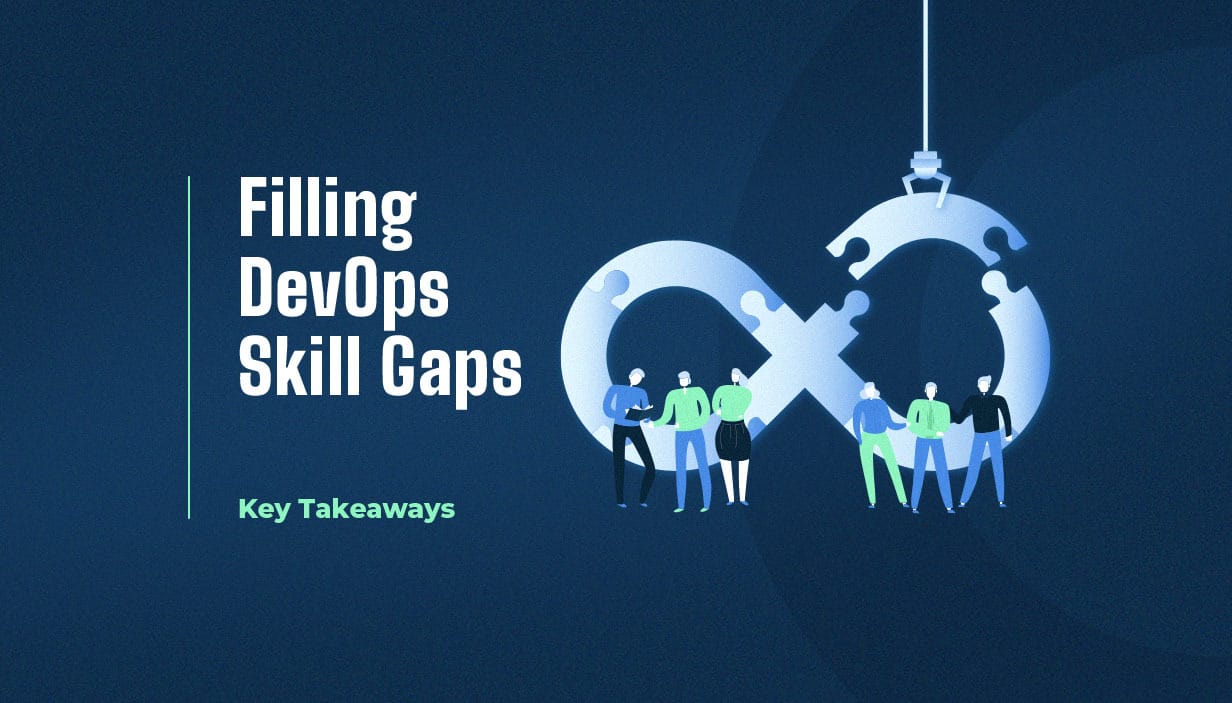The ongoing software developer shortage is reshaping the tech industry on a global scale. More than a third of tech companies report that the shortage of software developers and software engineers has become the top challenge for achieving their business goals. According to tech talent shortage statistics, the problem affects over 85% of organizations implementing DevOps practices, making it increasingly difficult for hiring managers to find talent with the right mix of technical skills and security expertise.
For DevOps teams, the tech talent shortage translates directly into missed deadlines, delayed software projects, and growing risk exposure. Most companies find that developer burnout, remote working challenges, and the great resignation have reduced their ability to maintain continuous delivery pipelines at the same speed as before. To remain competitive, organizations must learn to close the DevOps skills gap, not just to fill open positions, but to build sustainable capacity for the future.
DevOps Skills Gap Reality During Developer Shortages
The developer shortage is a sustained trend that has persisted for years. DevOps engineers are among the hardest-to-hire roles in the technology sector, with job openings growing at an average growth rate far above that of many other IT positions. In fact, job openings for DevOps roles surged 443% in just three years, yet many organizations, more than half, still report difficulty filling these critical positions.
DevOps Role Complexity Creates Hiring Barriers
Unlike citizen developers who may work on low-code tools, DevOps engineers require deep technical expertise spanning programming languages like Java, Go, and Python, multi-cloud architecture design, infrastructure as code, and security automation. This skills shortage is amplified by the rapid pace at which new software development methodologies evolve, forcing existing staff to continuously learn or risk becoming obsolete.
Cloud-Native Requirements Expand Skill Demands
The shortage of software developers is especially visible in cloud computing and Kubernetes ecosystems. Today’s skilled developers must know how to automate workflows, deploy across multiple cloud providers, and integrate AI tools into CI/CD processes. The tech sector has seen a rise in demand for specialists who can create innovative solutions for remote teams and hybrid infrastructures.
Developer Shortage Amplifies Operational Bottlenecks
More than a third of companies report that they employ hundreds of software developers supported by only a handful of DevOps engineers. This imbalance creates labor shortages in operations, slows digital transformation initiatives, and increases the likelihood of missed deadlines in critical software projects.
The shortage of software engineers also drives up salaries, senior-level DevOps engineers in tech giants and fast-scaling startups can earn over $200,000 annually. While this makes the field attractive for aspiring software developers, it also creates fierce competition among hiring managers trying to recruit skilled talent.
Identify and Prioritize DevOps Skills Gaps
Closing the skills gap starts with an honest assessment of current team capabilities. Many organizations fail to systematically evaluate their teams, resulting in missed opportunities to re-train skilled workers or redirect talented developers into DevOps roles.
A skills matrix that tracks proficiency in programming languages, cloud platforms, and digital solutions can highlight where training, hiring, or automation is needed. This step is critical for aligning resources with business goals and ensuring the team can meet delivery timelines even during a global shortage.
Four Strategies That Close DevOps Skills Gaps
- Transform Existing Talent Through Hands-On TrainingUpskill existing staff with structured programs that combine theory and practice, including coding boot camps and internal mentorship.
- Strategic Hiring of IaC and Kubernetes SpecialistsTargeted recruitment helps fill open positions in high-demand areas like infrastructure automation, cloud orchestration, and security engineers for compliance-heavy industries.
- External Certifications Validate Core CompetenciesRecognized certifications in DevOps, cloud computing, and AI tools help hiring managers quickly identify skilled developers in the job market.
- Build Continuous Learning Into Daily OperationsEncourage remote workers and in-office teams alike to participate in collaborative learning sessions and share best practices across departments.
Automation Eliminates DevOps Bottlenecks
The most effective way to address the software engineer shortage without compromising delivery is to automate repetitive tasks. Automation enables skilled developers to focus on higher-value work instead of manual processes.
How CTO2B Solves DevOps Skills Gaps During the Developer Shortage
At CTO2B, we help companies hit their business goals even when the software developer shortage continues. Our platform automates infrastructure provisioning, compliance enforcement, and Day-2 operations, reducing the need for large DevOps teams while maintaining enterprise-grade quality and security.
With CTO2B, hiring managers can:
- Give remote teams self-service access to secure, pre-approved infrastructure components
- Use IaC templates to standardize deployments across clouds
- Implement governance automation to enforce compliance without extra headcount
- Reduce dependency on scarce DevOps engineers and security engineers
- Support software development at scale without the delays caused by the tech talent shortage
Whether you’re struggling to find talent or simply want to maximize your existing staff, CTO2B delivers innovative solutions that close the skills gap, accelerate digital transformation, and free your skilled developers to focus on creating new software and delivering value.
FAQs
Is there a significant shortage of DevOps engineers in the current job market?
Yes, there is a notable shortage of DevOps engineers. According to recent surveys, 64% of DevOps leaders report recruitment challenges, and the demand for these roles has increased by 443% in just three years. This shortage is partly due to the complex skill set required and the rapid pace of technological change in the field.
How can organizations identify and address DevOps skills gaps in their teams?
Organizations can identify DevOps skills gaps by assessing current team capabilities against industry frameworks and performance metrics like deployment frequency and incident recovery times. To quickly bridge these gaps, partnering with DevOps outsourcers like cto2b.io offers access to seasoned experts who can upskill internal teams and accelerate delivery pipelines. This approach ensures faster, more scalable DevOps adoption without long recruitment cycles.


